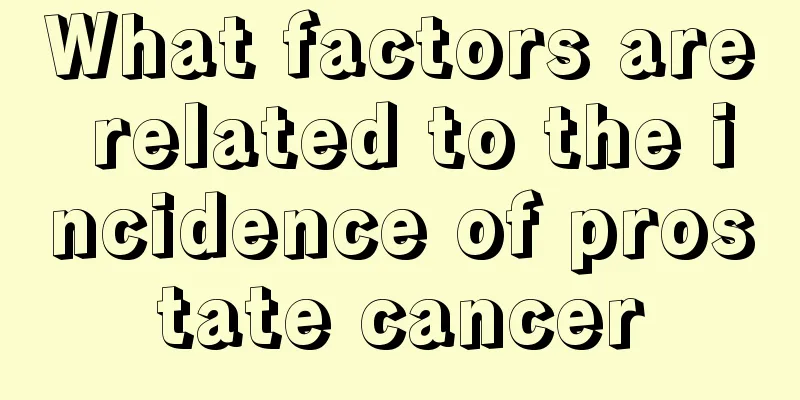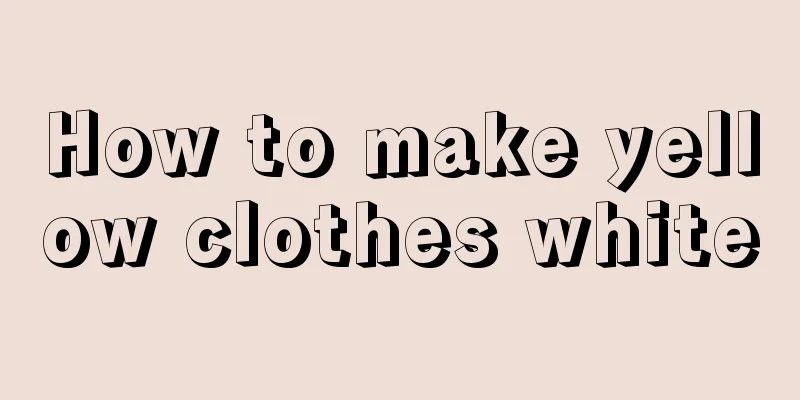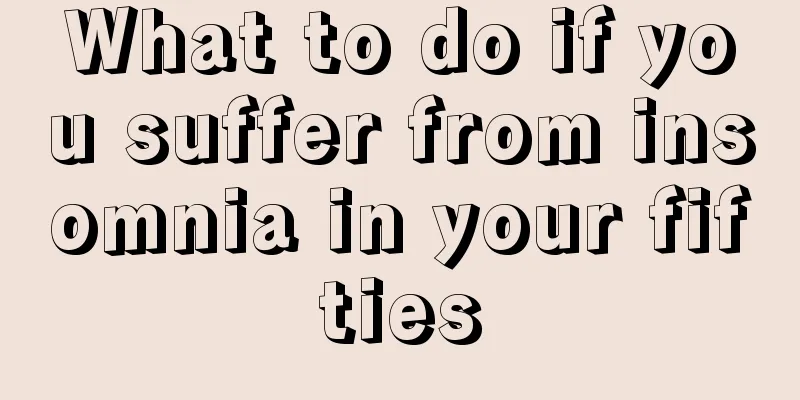How good are vitamins for hair loss

|
Long-term hair loss will not only affect one's image, but if it is severe, it will also lead to disease. Hair loss does not only mean a lack of vitamins in the body, it may also be pathological hair loss. If it is pathological hair loss, you should go to the hospital for examination in time. People who often undergo chemotherapy will also lose hair, and eventually all their hair will fall out. If hair loss is caused simply by vitamin deficiency, you can eat more foods containing vitamins. 1. How good is it to take vitamins for hair loss? 1. Vitamin A Vitamin A is necessary for normal epithelial keratinization. Long-term lack of vitamin A can cause the hair to become dry, prone to splitting, breaking or falling off. The main foods include: beef liver, beef, pork liver, chicken liver, kelp, etc. 2. Vitamin B Long-term use of vitamin B complex can restore the color of hair, while vitamin B2 and vitamin B6 deficiency can interfere with hair growth, causing poor hair growth or even hair loss. 1. Vitamin B2 Vitamin B2 is beneficial to hair growth; the main foods include: eggs, fish offal, oysters, clams, hairtail, goat milk, cow milk, beef liver, chicken liver and kidneys, etc. 5. Vitamin B6 Foods include: liver, cheese, egg yolk, milk, meat, fish, rice bran, yeast, spinach, celery, potatoes, etc. 2. Common causes and solutions for hair loss 1. Seborrheic alopecia: It often occurs in middle-aged and young people, characterized by thick oily secretions on the scalp, shiny, sparse and thin hair, or dry hair, dandruff, dullness, sparse and thin hair. Solution: Pay attention to eating a light diet, eat less irritating food, eat more fruits and vegetables, or take vitamin B6, B2, etc. 2. Pathological hair loss: mainly due to viruses, bacteria, and high fever that damage hair matrix cells, causing hair follicles to be in a state of shock and leading to hair loss, such as acute infectious diseases, long-term use of certain medications, etc. Solution: Get more rest and your hair will grow back after you recover or stop taking the medicine. 3. Chemical hair loss: Harmful chemicals damage scalp tissue and hair follicle cells, leading to hair loss. Solution: Do not use highly irritating hair dyes, perm agents and inferior shampoos. 4. Physical hair loss: Hair loss caused by air pollutants clogging hair follicles, harmful radiation, etc. Solution: Do not use nylon combs and nylon head brushes that are prone to generating static electricity. Wear a protective cap and wash your hair in an environment with serious air dust pollution. 5. Nutritional alopecia: Digestive and absorption dysfunction causes malnutrition and leads to hair loss. Solution: Improve nutrition and eat more fruits and vegetables, kelp, mulberries and walnut kernels. 6. Obesity-related hair loss: A large amount of saturated fatty acids produce waste after metabolism in the body, which blocks the hair follicles and causes hair loss. Solution: Eat less greasy and heavy food and increase physical exercise. 7. Hereditary hair loss: Hair loss is also hereditary, generally dominant in males and negative in females. |
>>: Which vitamin is lacking in eczema
Recommend
How long does it take to stop taking goserelin for prostate cancer
It is unclear how long it takes to stop taking go...
What are the effects of sweet potato leaves
Sweet potato leaves can actually be cooked as a f...
What should I do if I have a scar constitution
People with scar-prone constitution will easily b...
How to do ligament reconstruction rehabilitation training?
Ligaments are a type of tissue that is found thro...
What are the benefits of washing your hair with eggs in life
Using eggs to wash your hair is a good choice, ma...
Treatment of urinary retention in patients with bladder cancer
Urinary retention refers to the retention of urin...
Differential diagnosis of early nasopharyngeal carcinoma
Differential diagnosis of early nasopharyngeal ca...
What are the dangers of colon cancer
When it comes to colon cancer, I believe everyone...
Benefits of drinking milk to enhance sexual ability
Milk is a common drink in our daily life. It tast...
Which teeth are suitable for lingual correction
Teeth are a very important part of the human body...
7 tips to boost metabolism and speed up body detoxification
When the body's metabolism is normal, in addi...
What should I do if my eyes turn red after eyelash transplant?
In life, many women who love beauty get eyelash t...
Brief description: Common symptoms of malignant lymphoma
Clinically, the symptoms of malignant lymphoma ar...
What does it mean when there is a mole on the sole of the foot?
The soles of the feet are rich in sensory nerves ...
10-year survival rate of stage 3 nasopharyngeal carcinoma
Nasopharyngeal cancer is considered a life-threat...









